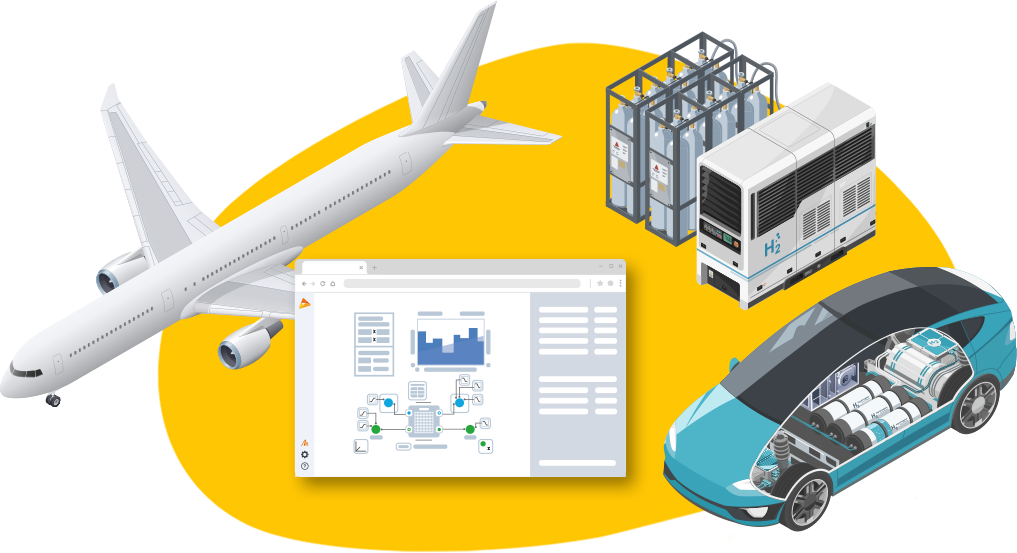
Hydrogen is an extremely promising clean energy source for transportation. Its higher auto-ignition temperature allows for greater compression ratios and thermal efficiency. Hydrogen can burn at a broader range of fuel-air mixtures than hydrocarbon fuels, and lean hydrogen mixes yield greater fuel economy with lower NOx emissions. The environmental benefits of hydrogen as a renewable energy source are well documented (especially in the case of “green” hydrogen).
Hydrogen comes with challenges. Its low volumetric energy density makes it less attractive than existing hydrocarbon fuels. Developing compressed hydrogen storage techniques for vehicles is a clear solution. Preventing boil-off and leakage while managing tank pressure and temperature is essential, especially while balancing the performance, safety, weight, and cost of hydrogen storage systems.
Safe, efficient long-term storage and refueling methods are also critical. Due to its highly flammable properties, compressed hydrogen gas poses safety risks, and requires compact and efficient storage methods that are still in development.
To make hydrogen-powered transportation part of our daily lives, engineers need comprehensive simulation and design tools to help solve these complex, multi-domain challenges.
At Modelon, we focus on making system simulation more accessible, reliable, and actionable by providing the tools and support engineers need. We proudly offer Modelon Impact, a cloud-native modeling and simulation platform. Modelon Impact makes it easy to build system models, analyze simulation results, and collaborate across teams.
Use Cases
Benefits
Ready to make an impact with system simulation?
Get in touch today to see how Modelon Impact can help you with your system simulation and product design journey.



